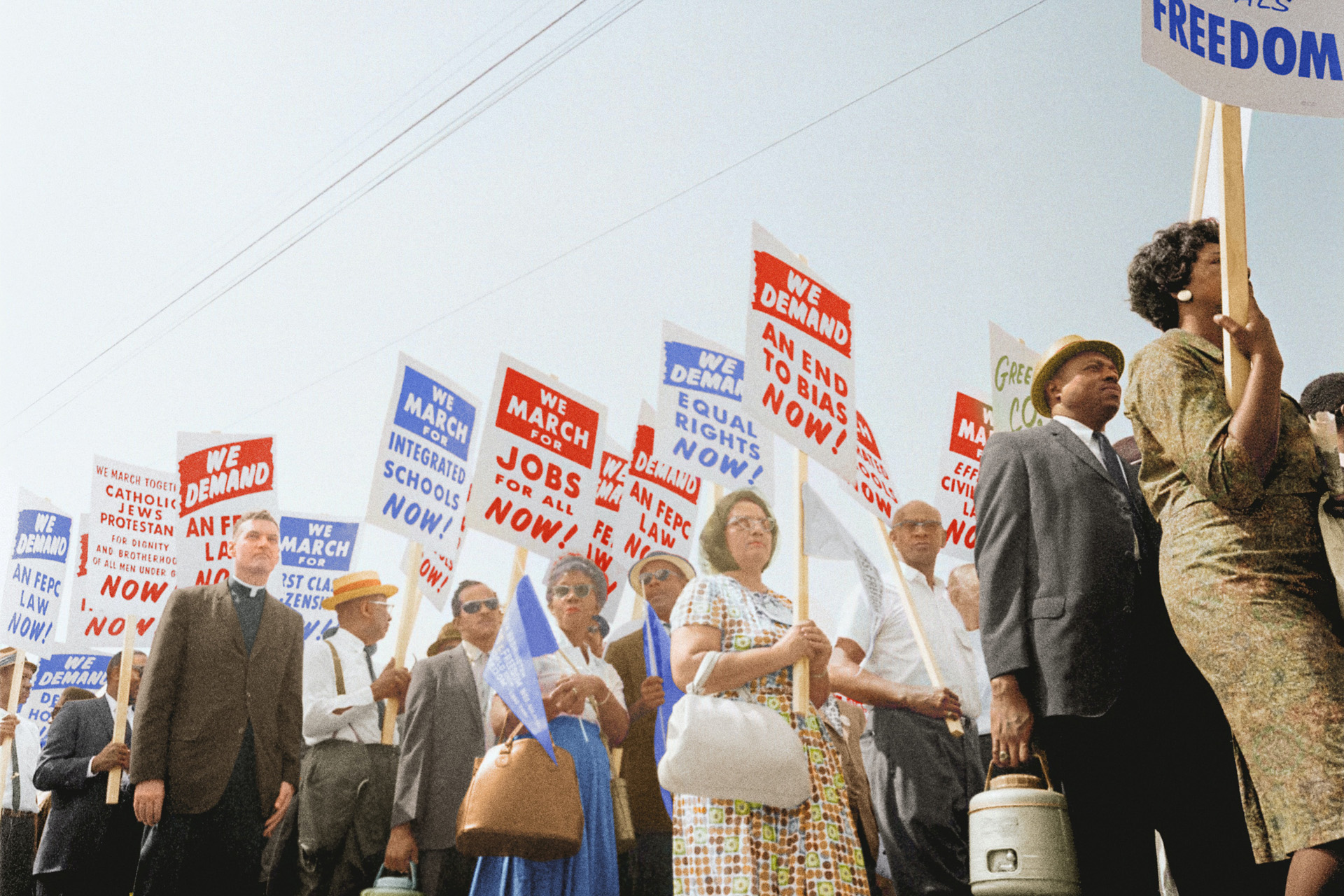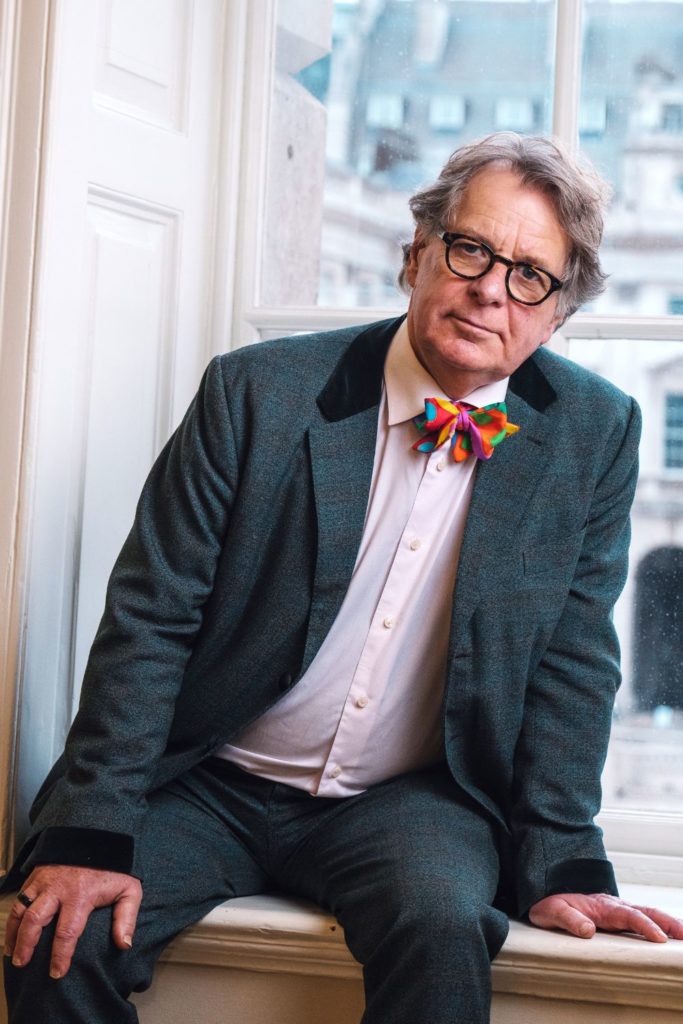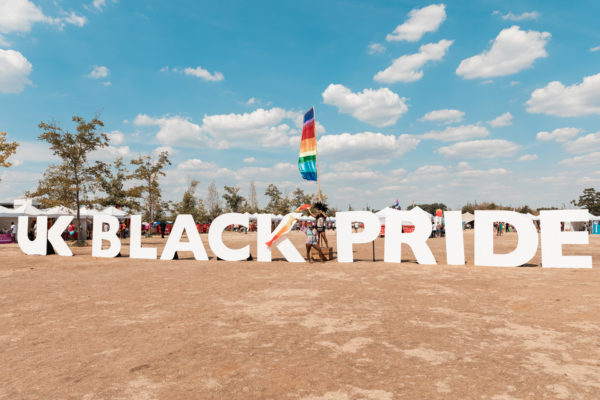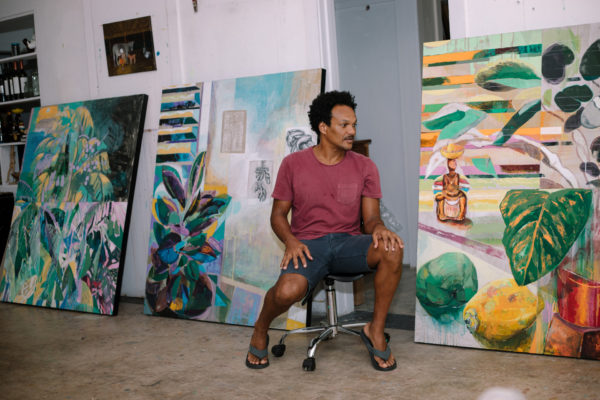Who Started Black History Month In The UK?
By
6 months ago
Here's how to get involved

October marks Black History Month, the annual celebration of the history, contributions and achievements of Black people in the UK. Every year, numerous events celebrating African and Caribbean cultures take place across the country. Here’s what you need to know about this important month.
What Is Black History Month?
Having originated in the States, Black History Month is an annual observance remembering and highlighting important people and events in the African diaspora. It dates back to 1926, when historian Carter G. Woodson at the Association for the Study of Negro Life and History (ASNLH) proposed the second week of February would be ‘Negro History Week’. Woodson chose this week as it covered the birthdays of Abraham Lincoln and Frederick Douglass, and it wasn’t until 1976 that the week grew into a month-long celebration, with President Gerald Ford looking to ‘honour the too-often neglected accomplishments of Black Americans in every area of endeavor throughout our history’.
Celebrating the rich cultural heritage and triumphs of Black people and remembering the adversities they’ve faced throughout the US’s history, the annual month was adopted by the UK for the first time in 1987 and includes events, exhibits, talks and programmes. While the first UK Black History Month explored Black American history, the UK is, of course, not the same as US – facing its own multifarious challenges – and the month-long celebration has since evolved on British shores to look at fostering an understanding of Black history in general, with a specific focus on the contributions of people with African and Caribbean heritage to British society. In recent years, the event has also lobbied the government to incorporate Black history and Britain’s colonial history more thoroughly in the school curriculum.
Who Started Black History Month In The UK?
Black History Month has taken place every October in the UK since 1987, thanks to Akyaaba Addai-Sebo who came to the UK from Ghana as a refugee in 1984. In the mid-1980s, Akyaaba says he was ‘stirred up […] by the identity crisis that Black children faced’. ‘Some brazenly would not identify with Africa and shrank when called an African’, Akyaaba says, and he was devastated to find Black British children were ashamed to be Black.
‘A colleague came to work one morning broken hearted and, in probing her why, revealed to me in confidence that her seven year old son, who she had proudly and purposefully named Marcus, after Marcus Mosiah Garvey (a foremost Black nationalist leader), before going to bed, had asked her: “Mom, why can’t I be white?”,’ Akyaaba shared with the Black History Month magazine in 2017. ‘In consoling this devastated mother, I was prompted to go around asking questions about “identity” and to observe and talk to children more after school, in buses, parks, and in the play grounds in the communities in some parts of London. I was awakened to the fact that even some Ghanaians tried to mimick being Afro-Caribbeans and some Afro-Caribbeans would take offense being referred to as “African”. A crisis of identity faced us squarely. despite the Race Awareness campaigns of the Greater London Council (GLC) and the Inner London Education Authority (ILEA). I also worked then as the Special Projects Coordinator of the Ethnic Minorities Unit of the Greater London Council. More had to be done, and so I conceived an annual celebration of the contributions of Africa, Africans and people of African descent to world civilization from antiquity to the present and got a lot of support from the leadership of the GLC and ILEA and most especially from Mr. Ansel Wong, Head of the Ethnic Minorities Unit and the leader of GLC, Mr. Ken Livingstone.’
Why Is Black History Month In October?
In the US and Canada, Black History Month takes place annually in February, but in the UK, Ireland and the rest of Europe, it is celebrated in October. Why? Here’s what you need to know.
UK Black History Month 2024
UK Black History Month grows every year. For 2024, the theme is ‘Reclaiming Narratives’, aiming to recognise and correct the narratives of Black history and culture, and to shine a brighter light on Black stories, allegories and histories. As Cherron Inko-Tariah MBE writes: ‘This theme underscores a commitment to correcting historical inaccuracies and showcasing the untold success stories and the full complexity of Black heritage. It’s about taking control of our stories and honouring our heroes while challenging the narratives that have often overlooked the contributions and achievements of Black individuals both in the UK and globally.’
When Is It?
Black History Month takes place every October in the UK, running for the entire month.
How To Get Involved
Read Brilliant Black British History
Children’s author Atinuke has teamed up with illustrator Kingsley Nebechi and Bloomsbury to publish Brilliant Black British History, an enlightening journey through the history of Britain, focusing on what is typically left out of the history books: Black British history. Ranging from science to sport, the book celebrates the hard work of brilliant Black people from different backgrounds that have helped build Britain. Plus, there’s a complementary exhibition to explore at Brixton’s Black Cultural Archives (1 Windrush Square, Brixton SW2 1EF), running until 28 January 2024.
Details: Learn more at bcaexhibits.org
View this post on Instagram
Explore The Black Cultural Archives
The Black Cultural Archives is the UK’s largest archive dedicated to preserving and celebrating the lives of Black people in the UK. It was founded in 1981 by Len Garrison and aims to inspire and give strength to individuals, communities and society. The BCA hosts events throughout the year, with special events in Black History Month, including talks and exhibitions. Or just pop by to explore the incredible archives.
Details: The Black Cultural Archives is located in Brixton (1 Windrush Square, London SW2 1EF), and is open Thursday to Sunday every week. blackculturalarchives.org
Find more ways to celebrate Black History Month in London here
Donate To Charity
There are a number of British charities directly supporting Black communities, including:
Learn more at blackhistorymonth.org.uk







